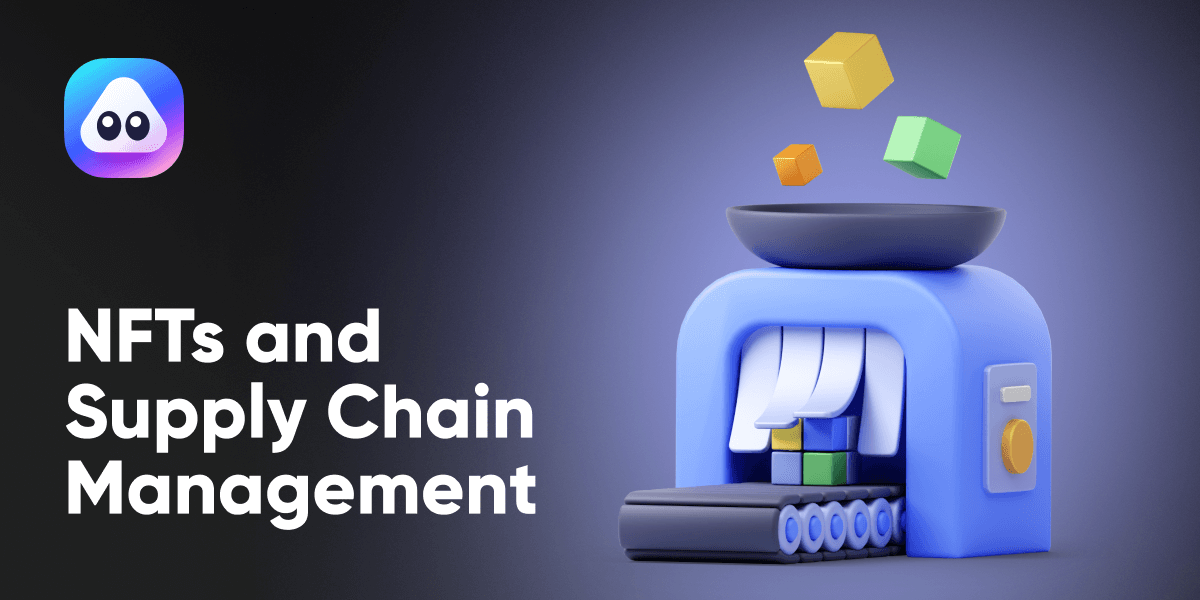NFTs and Supply Chain Management
Whether or not you are aware of it, supply chain processes affect you. Learn how NFTs can ease the supply chain pain points and improve the industry.
December 10, 2022

Supply chain management (SCM) is a complex sequence of activities that involves getting a raw product to the end consumer in its finished state. In any industry, optimizing systems and processes is no easy task– from material handling and distribution to information management. NFTs can potentially reduce the pain points in the complex supply chain sector. But first, what are the current challenges?
1. Product Information
In our increasingly globalized and interconnected world, the origin of the products we purchase can be hard to trace. The supply chain in any industry is complex and spans multiple countries, making the authentication process even more demanding. Existing solutions like QR codes that have helped reduce counterfeit products are still subject to manipulation. Unsuspecting buyers can divulge valuable information via QR codes and possibly suffer incalculable losses.
2. Bottlenecks
As any business owner knows, supply chain management is essential for keeping costs down and ensuring that products are delivered on time. However, achieving efficiency in the supply chain is often easier said than done. Several factors impact efficiency, including the number of suppliers, the location of suppliers, and the type of products being transported. In addition, disruptions in the supply chain can often lead to significant delays and cost increases.
3. Cost of Trust
Trust is crucial in any business transaction, and the cost of trust for a supply chain with several moving parts is remarkably high. Operations are mostly non-transparent, and end users rely on governing authorities to ascertain quality. The supply chain industry's current scope needs to consider the increased consumer demand for transparency.
Redefining Supply Chain with NFTs
Non-fungible tokens (NFTs) can transform the supply chain industry in the following ways:
1. Asset tracking
NFTs, using the underlying blockchain, can be used in supply chain management to provide a secure and efficient way to track and manage assets. With NFTs in the supply chain, each asset can be given a unique identifier that can be used to track the asset through the supply chain. This will allow for more efficient and accurate tracking of assets, which will, in turn, lead to a more efficient and effective supply chain overall.
2. Proof of History
NFTs are non-interchangeable assets. This makes them well-suited for tracking the ownership and provenance of physical goods. For example, an NFT could represent a shipment of coffee beans, with each package represented by a unique token. By tracking the movement of these tokens through the supply chain, it would be possible to build a complete picture of where the beans have been and who has handled them.
3. Real-time information
The growing consumer demand for transparency can be met through NFTs and smart contracts. Users can check a product's history, and anyone with an internet-enabled phone can verify real-time information.
Conclusion
Supply chain management (SCM) is one of the fields where NFTs can thrive. With the success of Walmart’s venture into blockchain to track a Chinese Pork supply chain, more businesses using NFTs and smart contracts to manage their operations are not so far off.
Keep an eye on our blog for the following piece on our NFT use case series.
